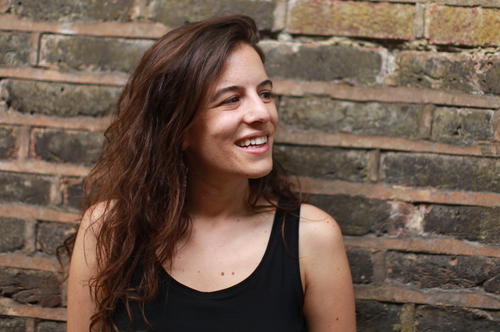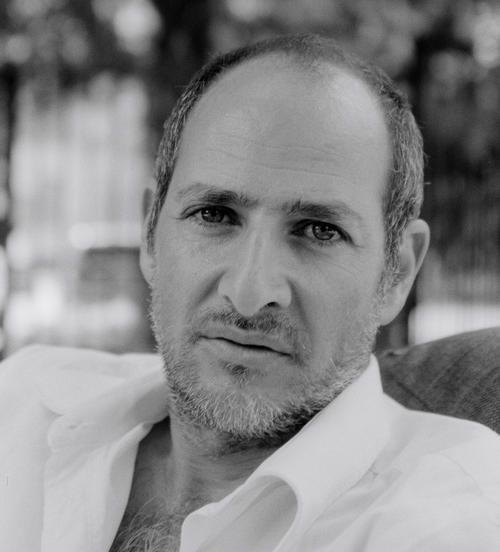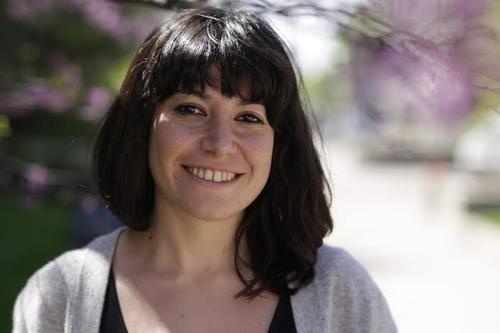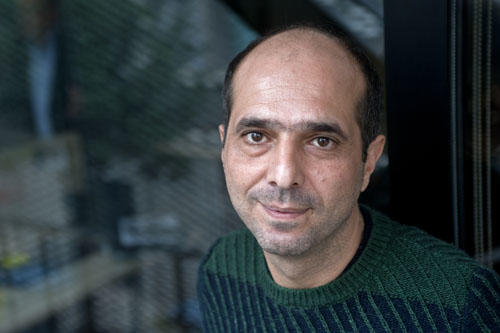Fellows 2017/18
Rasha Chatta
earned her PhD in Comparative Literature from SOAS, University of London (2016), with a dissertation entitled “Marginality and Individuation: A Theoretical Approach to Abla Farhoud and Arab Migrant Literature”. She holds an MA in Near and Middle Eastern Studies from SOAS and a BA in History of the Middle East and North Africa from Panthéon-Sorbonne (Paris I) and “Classes préparatoires” in Humanities. At SOAS, Rasha has taught courses on Arab women’s literature, Arab cinema, and the Arabic language. In 2009, she was Community Outreach Director at the Cairo-based Resettlement Legal Aid Project. Rasha’s research interests include visual aesthetics and memory, approaches to world literature, migrant and diasporic literatures, and war literature with a focus on Lebanon and Syria. Among her publications is the chapter “Mutations of the Trans-Migrare: Reflections on Individuation and Un-Homing on the Other Side of Belonging”, in: Kläger, F. and Stierstorfer, K. (eds.), Diasporic Constructions of Home and Belonging (Berlin: De Gruyter, 2015), 53–69. During the academic year 2017/18, Chatta is a EUME Fellow. Contact: rchatta@zedat.fu-berlin.de
The Arab Migrant Graphic Novel: A Comparative Study of (Im)Migrant Stories, War Narratives, and Conflicted Memory between the Near East and EuropeThis research project will focus on the graphic novel, a sub-genre that is traditionally less examined in Arab and Middle Eastern Studies. It will seek to offer a comparative study of the Arab migrant graphic novel by examining the visual and creative portrayal of (im)migrant experiences in the aftermaths of the Lebanese civil war, the Israeli-Lebanese war of summer 2006, and the Syrian war in the wake of the Arab spring. It will also focus on the role of memory in bridging dislocated narratives between the Near East and Europe. The project engages analytically with the creative forms of expression attending the current mass migrations, offering historical depth to the understanding of the cultural roots of recent movements and experiences. While aiming to bring the expertise of area studies to bear on the radical new artistic forms, the study will also aim to contribute on the side of visual studies and the study of comic and graphic narratives. It will seek to do so both by expanding the reach of these fields to include contemporary authors of Arab background writing in Arabic and different European languages, and by exploring the possibility of a comparative approach to the visual aesthetics of conflicted memory.
Yoav Di-Capua
is an Associate Professor of History at the University of Texas at Austin, where he teaches modern Arab Intellectual History. He received his PhD from Princeton University in 2004. He is the author of Gatekeepers of the Arab Past: Historians and History Writing in Twentieth-Century Egypt (University of California Press, 2009). His new book, No Exit: Arab Existentialism, Jean Paul Sartre and Decolonization, is forthcoming with the University Press of Chicago. In the academic year 2017/18, he will be a EUME-CNMS Fellow of the Alexander von Humboldt-Stiftung.
Sacred Cure: Political Theology and the Post-Colonial Arab OrderSacred Cure is a study of post-colonial Arab ontology that seeks to illuminate the cultural transition from the national projects of the 1950s and 1960s (Nasserism and Baʿthism) to that of Islamic fundamentalism thereafter. Rather than viewing these two movements in separation as two consecutive projects that have nothing in common, Sacred Cure suggests that the two trends developed strikingly similar strategies to transcend the post-colonial condition. Though the scholarly consensus upholds the idea of difference (as in secular versus religious), in reality both movements mirrored each other and developed very similar, if not identical, notions of sovereignty, freedom, authenticity, sacrifice and salvation. These notions functioned as the organizational principles of an ontological field in which “the political is existential.” At stake in such politics is the possibility and promise of communal redemption. To say that for Nasserism, Baʿthism and Islamic Fundamentalism the political is existential is to refer to the ways in which they created, promoted and maintained a sacred political experience with its own institutions, norms, ethics, moral space, rituals, ethos and distinct sense of history. Conceived as a deep study of decolonization, Sacred Cure ventures into the field of political theology to examine how an organization of politics that is founded on the imagination of the sacred becomes an article of faith that shaped everyday life for millions of people around the region. Contact: ydi@austin.utexas.edu
Lamia Moghnieh
received her PhD in Social Work and Anthropology from the University of Michigan, Ann Arbor. She also holds an MA in Social Science from the University of Chicago and an MA in Psychology from the American University of Beirut. In her dissertation “Humanitarian Psychology in War and Postwar Lebanon: Violence, Therapy and Suffering”, she examines the humanitarian process of psychologizing suffering from war and displacement from Israel’s invasion in 1982 to the Syrian Refugee crisis in 2012. Based on 18 months of ethnographic fieldwork, this research looks at how humanitarian psychology — a new form of expertise — sought to produce therapeutic subjects that both experts and communities in Lebanon contested, appropriated and negotiated. In 2016/17, Moghnieh was a postdoctoral fellow of the Arab Council for the Social Sciences (ACSS), affiliated with the SOAM department at the American University of Beirut. She recently took part in a collective special issue publication in Contemporary Levant on “Ethnography as Knowledge in the Arab Region”, contributing a paper on “The Violence We Live In: Reading and Experiencing Violence in the Field” (2:1, 2017, 24-36). In the academic year 2017/18, she is a EUME Fellow.
Global Mental Health at the Periphery: A Social History of Psychiatry, Humanitarianism and Violence in Lebanon (1860–2012)The project examines the history and development of modern psychiatry in Lebanon, starting from the first humanitarian intervention in Ottoman Syria in 1860 — and the foundation of the first psychiatric institution in 1900 Ottoman Lebanon and the Levant — to the present day. The project looks at the entanglements between humanitarianism and psychiatric science as two projects of modernization and rehabilitation of subjects in the Middle East. Lebanon represents a powerful case for how both of these projects unfolded to produce new forms of therapeutic subjects in Lebanon, especially with regards to violence and war. More specifically, the project looks at 1) the psychiatric reforms in the late 19th-century Lebanon; 2) how modern psychiatry classified and diagnosed various social transformations in 20th-century Lebanon and 3) how humanitarianism psychologized violence and war, creating new forms of therapeutic subjects in Lebanon. Deeply committed to a multidisciplinary approach, Moghnieh situates her project at the intersection of critical medical anthropology, the history of science and society and Middle East History. The book is a mixture of ethnography, archival research and interviews with psychiatrists in Lebanon. The archival research is based on collected records of the Lebanon Hospital for Mental and Nervous Disorders — popularly known as Asfourieyh hospital (1901-82) —, scientific journals and various magazines. Contact: lamia@umich.edu
Yektan Türkyilmaz
received his PhD from Duke University Department of Cultural Anthropology. He taught courses at University of Cyprus, Sabancı, Bilgi and Duke Universities addressing the debates around the notions of collective violence, memory making and reconciliation. He is working on his book manuscript based on his dissertation, Rethinking Genocide: Violence and Victimhood in Eastern Anatolia, 1913-1915, that addresses the conflict in Eastern Anatolia in the early 20th century and the memory politics around it. Yektan Türkyilmaz has been a 2014/15 EUME Fellow and returns as a EUME Fellow for the academic years 2017/18 and 2018/19.
Roots and Routes of a Catastrophe: The Context and Afterlife of the Armenian Genocide (1915-2015)Türkyilmaz’s current project traces the genealogies of historiographical threads on the Armenian Genocide. Such a research involves a critical reassessment of the representations of the Armenian Genocide in multiple languages and formats, namely, in scholarly and popular histories, in memoirs, in visual arts as well as in literature and music. This project is inspired by two major concluding observations in his previous research. The first one is about how the Armenian Genocide as a process, ironically, has served as a ‘creative’ and generative reference that helped foster novel ideological formations redefining boundaries of inclusion and exclusion. Particularly crucial in this trajectory is that the Armenian Genocide sets an exemplary case for many other instances of collective violence in the broader region of the Middle East. Further, it marked the emergence of ongoing tensions in the region between authoritarian secularism and Islamist models for modernization, between predatory ethno-nationalist or exclusionary religious movements that advocate social/demographic purity, and advocates pluralist cultural traditions.
Emergent threads in historiography have not simply reflected new faces of these tensions but also have turned into a major force in redefining the terms of these controversies. Along those lines, Türkyilmaz’s second and consequent observation is that what we observe today in the countries that emerged from the Ottoman Empire is indeed a dynamic and renewed and not simply a stagnant and ancient conflict. Unlike currently available works on the historiography of the conflict, this project seeks to go beyond methodological nationalisms or the fetishisation of particular archives. Rather than focusing on one thread of narrative construction in isolation, Türkyilmaz proposes to put these threads of historical writings and cultural productions in dialogue as well as locating them in their local, regional and broader global contexts. He suggests that it is within these geo-political and historical scales that these historiographical traditions were formulated, and simultaneously challenged and co-constructed each other. Contact: yektan.turkyilmaz@gmail.com









